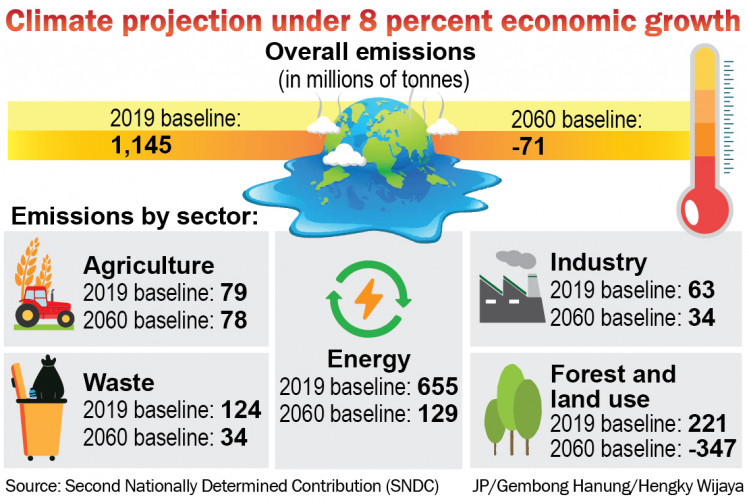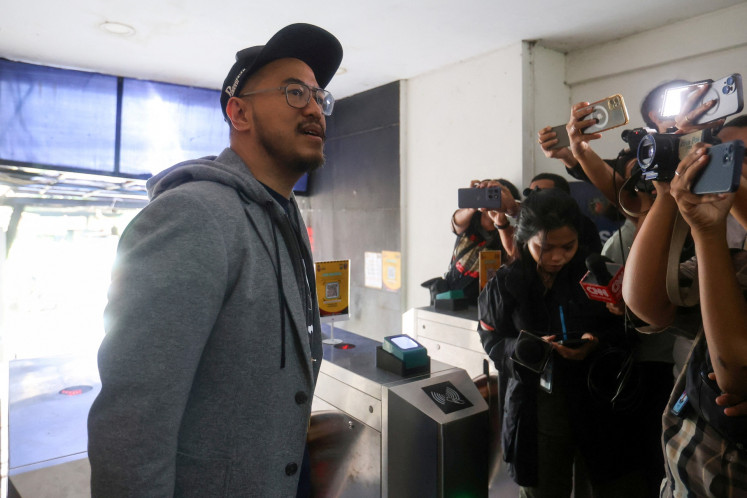Popular Reads
Top Results
Can't find what you're looking for?
View all search resultsPopular Reads
Top Results
Can't find what you're looking for?
View all search resultsIndonesia’s ‘weak’ climate pledge lambasted
Anticipation had been high that Indonesia would demonstrate a strong commitment to renewable energy and greenhouse gas emissions reduction following promises made by President Prabowo Subianto’s administration.
Change text size
Gift Premium Articles
to Anyone
A
ctivists have voiced their criticism over Indonesia’s new climate goals, describing them as falling short of the outpacing environmental destruction caused by the country’s heavy reliance on fossil fuels.
Anticipation had been high that Indonesia would demonstrate a strong commitment to renewable energy and greenhouse gas emissions reduction following promises made by President Prabowo Subianto’s administration. Having missed the February and September deadlines, Indonesia finally submitted its second nationally determined contribution (SNDC) on Oct. 27, roughly two weeks before the United Nations climate change conference in Belém, Brazil kicks off on Monday.
The document outlines the government’s commitment to reducing greenhouse gas emissions in 2031-2035 and beyond, using the 2019 emissions as baseline. This new pledge also uses the government’s economic growth assumptions, including Prabowo’s 8 percent target by 2029, to help it quantify emissions-reduction targets.
Under this ambitious economic target, Indonesia is expected to reach its peak greenhouse gas emissions level in 2030 at 1.49 gigatonnes of carbon dioxide equivalent (CO2e), before gradually declining and reaching a negative emissions level of 0.071 gigatonnes by 2060.
Climate projection under 8 percent economic growth. (JP/Hengky Wijaya)Meanwhile, under a lower projected economic growth of 6 percent by 2030 and 6.7 percent by 2035, Indonesia is expected to produce 1.34 gigatonnes of emissions in 2030, before reaching 0.08 gigatonnes by 2060.
The government claims these two scenarios, which are deemed compatible with the Paris Agreement target of limiting global temperature rise to 1.5 degrees Celsius, are possible with international assistance.



















